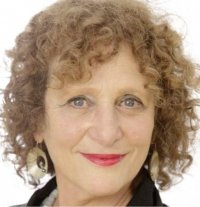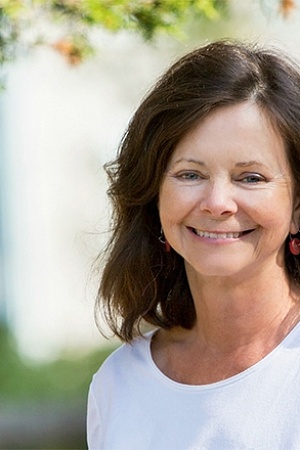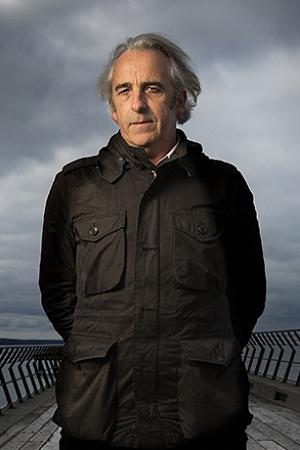An interview with Kim Scott
Ramona Koval interviews Kim Scott, co-winner of the Miles Franklin Literary Award for Benang.
Ramona Koval: Did this book come out of your own anger and resistance?
Kim Scott: Yes, and some confusion perhaps and then I got into the archives, trying to work out my own family history, since there wasn’t an oral history at that stage that could help me out that way. When I started reading the historical stuff, Neville’s stuff and native welfare and the local histories, and started to think about myself in an historical position, then there was a lot of anger and bitterness. It’s inevitable, I think. Then you feel like you’ve been duped or you feel like there is all this history, knowledge and information that I’d been cut off from. So there was anger and the need to resist those processes, to resist being caught up in any way and entangled in that sort of social engineering and that history that’s about forgetfulness, that genocidal stuff.
RK: The narrator wants to fail at the task of being the first successful white man born out of his grandfather’s scheme. There’s a huge ambivalence about what is success and what is failure, as if to succeed in white terms is to embody the very genocidal ideas that set things going in the first place. That must be a very precise and difficult personal struggle.
KS: I’m always a bit concerned about the ambivalence. I write the ambivalence and speak the ambivalence a little bit more than I feel it, I think, in terms of who I am. Amongst my people, there are very few of us that write and because of the damage done in the last few generations, there’s not a lot of people reading either. So I immediately think things like who am I writing for? Who am I benefiting, writing this sort of material? And partly for those reasons, I think that I start this book out the way I do, to make sure, I hope, that it is done with integrity. Even though it is fictional, I still make myself vulnerable positioning myself like that.
RK: Vulnerable to what?
KS: Many things. I think I am in danger of reanimating some of those ways of thinking, which I think are still present but I am in danger of giving them a bit of energy – that sort of caste talk.
RK: Like this bloke is the product of a white education or a university education and is working in the white area of writing, so therefore...
KS: That wasn’t what I was meaning to say but I follow that along. That’s one of the dangers. Within my community, people will wonder who’s that fellow? He’s set himself up too flash. Is that what you were meaning?
RK: I was thinking that you’d be seen as a success, whose writing this novel in the right way.
KS: I hope so but that will take time to filter through, I think, because there is not a lot of people among my community that will read it initially. They will be reacting to other people that have read it and they will be talking in lots of ways, working out where I fit in, before they’d rate it a success. They’ll be interested and particularly in its starting out that way which is to not claim a lot of traditional connections for oneself. I hope still to make a powerful and important story starting from that position, which is about the damage done, and about white madness, and about survival. I think that will be important to people. One of the issues is that, with visual arts or with writing, you get manoeuvred by media interest into being some sort of spokesperson. And I don’t want to get into that. I want to make it a singular voice even though that goes against conventions, a singular voice speaking just for myself and making a quite strong claim about having an Aboriginal identity, taking on all that rhetoric and all those racist sorts of discourses and using white voices.
RK: I don’t want to get away from the fact that it’s a beautifully written novel but I just want to talk about some of the poignancy in the notes from the character Jack Chattalong whose trying to convince the Department that he’s not black enough to come under the control of the Department, trying to argue for a certificate of exemption. Are his letters straight out of the files or out of your mind?
KS: They’re the sort of stuff I came across repeatedly including from my own family, when I was researching this book. I looked at the place that I am descended from, that country I am descended from, and found any paper work associated with it and then I looked for my family names and this is the sort of thing I was coming up with. What you see are people having to work within ways of thinking that are the only ones left available to them to participate in their society. Working with those sorts of tools, you can see a divide and conquer thing going on, a separation of Aboriginal people from one another – I think that’s all part of the genocidal stuff and that’s painful stuff to encounter and to work through when you are writing stuff inspired by family history. Normally the statistics talk about things – and I think this applies even more so to the country I am from – within fifty years of first white contact, that ninety-five per cent of the indigenous population had gone, had been wiped out. So heroes of mine are those people – it’s sort of like a post–Holocaust thing, that might not be the best phrase to use, but it’s like that, after great decimation. So there’s five people for every hundred still standing up and still wanting to stand up for themselves and who they are and all those countless generations before them. The way to do it, to take on power – since a lot of physical resistance has proved impossible – is a man standing up and saying ‘I have as much right as any of you people and how come you’re cutting me out?’ There’s not a lot of my people living in their country, which is to do with massacres there twenty, thirty years previously. There’s also this legislation which is if you are mixing with Aboriginals – part of that ultimatum that was delivered to an Aboriginal person – was become a white person or you’ll die.
RK: That awful, ‘I don’t mix with them, so why I should I be one of them’, taking on the view of the white people.
KS: To some extent. I would say it’s not completely taken on but there are certain instances where that’s occurred. One of the reasons – and wanting to write this with a narrator starting this by saying I may be the first white man born, and making it a singular voice and not speaking for anyone else but myself and maybe my blood line, my family – is to take on some of the difficulty and the damage in the psyche that comes from being manoeuvred and manipulated, being encouraged to think in these sorts of ways. I want to work through that sort of damage and because I have got certain tools that a lot of others of my people haven’t, I feel obliged to take on this sort of thing and work through the damage. And still end up strong, that’s what I hope the book does.
RK: Kim, tell me about the magic realism in the levitation of Harley. He has a tendency to just float away sometimes. How did you come to write that in?
KS: That’s when I got some energy going. I talked before about being angry, angry reading the voices in the archives, and I wanted to take on Neville and defuse the potency of all the written stuff and that uplift and elevation, I thought, I’ll just do that. I’ll take it literally. That helped me get out of the straitjacket of staying within his terms. Then, as I kept writing, it seemed to make sense in all sorts of other ways as well.
RK: It allows you to take overviews, if you have your character flying in a way and people grabbing onto him and pulling him down. At times he finds himself being elevated beyond his wish. It’s actually a freedom in the writing.
KS: It’s freedom in the writing and it seems to be about being somewhat disconnected from place, from people and country – tenuous connections allow me to deal with some of that. And it allows me just in writing to get out of some of the limitations of Neville’s sort of language. Then later on it seemed to be able to speak – I think of one’s self being just one of many possible manifestations of country or a particular place and its related to traditional ways of thinking –and he is, as I am, just one of those many possible manifestations of place, even though initially it’s about his disconnectedness and its people pulling him back, as are the stories. That’s him, like a bird is an expression of a particular place in many instances but is not touching the land all the time. He is ambivalent. That seemed to me to fit with those sorts of traditional notions that there are all these different expressions of place inhabiting it, all these beings, and each person is just one possibility, so you can be unique and you can be different, but you’re still connected and still belonging in that place. Harley’s like that.
RK: Harley, the narrator of the book, is aware he is writing historical fiction. He even says that he acknowledges and nods to the demands of historical fiction. What do you see those demands as being?
KS: What I try and do is connect with all those other generations before the last few. I was thinking of things like Sir Walter Scott’s novels and how he did it. I was thinking how can I do historically representative forces, the big sweep? What are the things that are important to talk about? The Depression, the War. At one stage I wrote those in, had Harley thinking those things and I kept them in, because it seemed not too self-conscious. You inevitably do think about all those things when you’re working with sophisticated, white literary discourses – that sort of self-awareness needs to be there, even though it makes it harder in some ways to talk about some of the things you want to. Hopefully, by doing that it helps make you language conscious and aware, like getting things to speak from between the lines and from behind the language. I think this makes you confront and take on the history and that’s just the last few generations I’m talking about. It makes you stronger, that’s the healing thing that I talk about in the book as well. I think this applies to everybody confronting the history and looking, taking it on deeply and the damage done to the psyche, it makes you stronger. Not wanting to be too political, but it’s a great sadness that some of our non-Aboriginal leaders are too frightened to do this.
This is an edited version of an interview broadcast on Books and Writing, courtesy of Radio National.









Leave a comment
If you are an ABR subscriber, you will need to sign in to post a comment.
If you have forgotten your sign in details, or if you receive an error message when trying to submit your comment, please email your comment (and the name of the article to which it relates) to ABR Comments. We will review your comment and, subject to approval, we will post it under your name.
Please note that all comments must be approved by ABR and comply with our Terms & Conditions.